A new investigative report into the assassination of BBC Jaffna correspondent Nimalarajan Mylvaganam has cast fresh light on Sri Lanka’s systematic failure to hold perpetrators accountable for crimes against journalists.
The 70-page report, jointly published by the International Truth and Justice Project (ITJP) and REDRESS, provides a forensic analysis of the police investigation into Nimalarajan’s 2000 murder, exposing critical failures that, according to its authors, point to a broader pattern of state-enabled impunity.
The report notes that between 2000 and 2010, at least 44 journalists and media workers were killed during the country’s civil war. However, not a single perpetrator has been brought to justice.
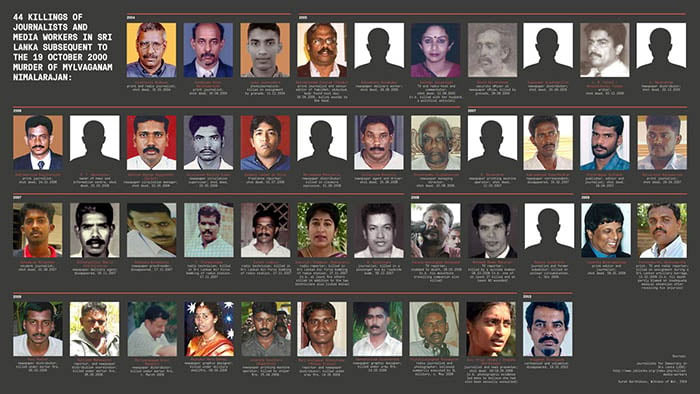
“This level of impunity sends a chilling message to the few remaining journalists who risk their lives to report the truth — whether under self-censorship, exile, or threat,” said Yasmin Sooka, Executive Director of ITJP.
Perilous climate for journalists
Despite the murder taking place during a period of intense curfew and heightened military presence in a high-security zone surrounded by army checkpoints, police failed to secure or document the crime scene. No photographs were taken, nor was any proper forensic or medical evidence collected.
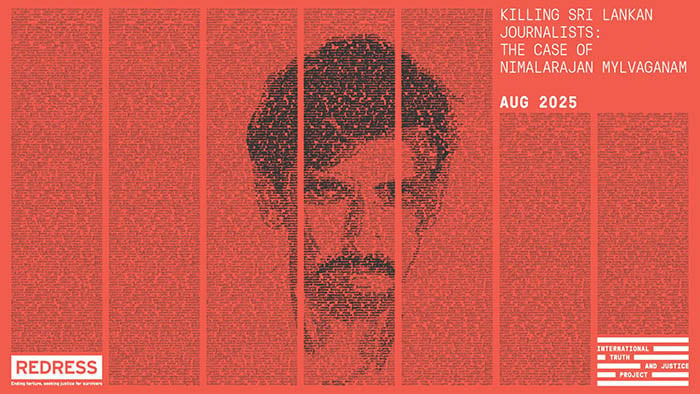
The report underscores how Nimalarajan’s house was never cordoned off, and several key security personnel who had been on duty that night were neither promptly interviewed nor adequately interrogated — some were not even identified. Mishandling of ballistics evidence further delayed and undermined forensic conclusions.
While credible threats to Nimalarajan’s life had been reported and multiple anonymous phone calls received before the killing, investigators chose instead to scrutinize his bank account — an action described in the report as "inexplicable."
In a deeply troubling revelation, suspects in the case were allegedly allowed to roam freely, commit additional crimes, and even leave the country, with reported assistance from the Sri Lankan security apparatus.
When interrogated, most suspects denied involvement and were released without charge. Some reportedly bore visible signs of torture and claimed they were forced into signing false confessions.
The EPDP connection
The most serious allegations implicate members of the Eelam People’s Democratic Party (EPDP), a government-aligned paramilitary group.
However, the police never once questioned EPDP leader Douglas Devananda, despite longstanding accusations linking his group to the killing. Instead, Devananda enjoyed uninterrupted political power for over two decades, serving as a Cabinet Minister in every administration since 2000 and only losing his ministerial post in 2024.
In stark contrast, Nimalarajan’s parents died in exile in Canada, still waiting for justice.
A fugitive in the UK
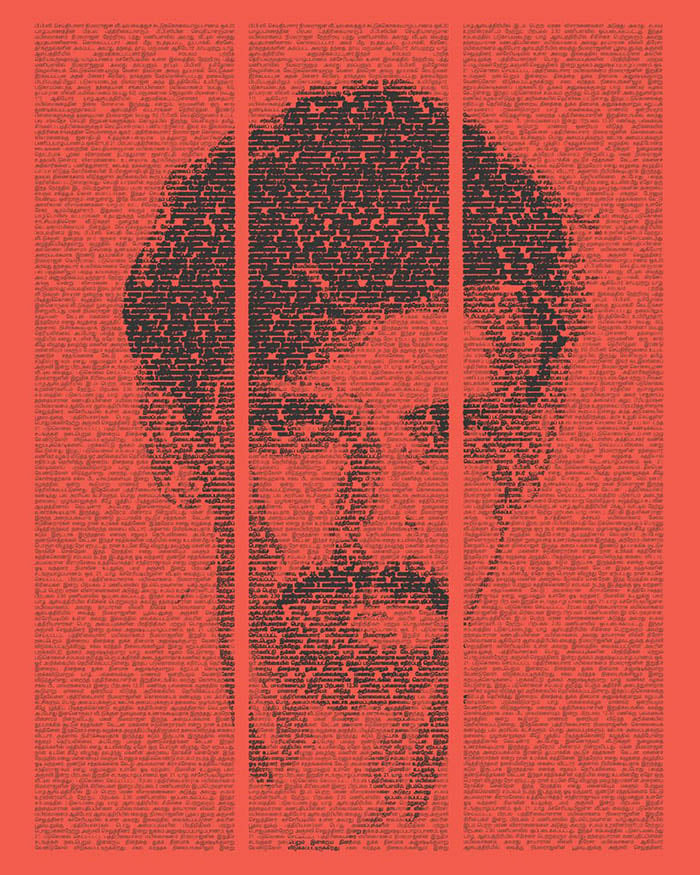
Due to the lack of credible domestic accountability, the United Kingdom has stepped in. On February 25, 2022, British police arrested a 48-year-old man in Northamptonshire in connection with Nimalarajan’s murder.
The arrest came as part of an active investigation by the UK Metropolitan Police’s War Crimes Team, examining alleged war crimes from the early 2000s Sri Lankan civil war period.
Though the suspect's identity remains officially undisclosed, he is widely believed to be an EPDP member known by the alias “Napoleon.”
Sri Lankan courts had issued an arrest warrant for him years earlier, but he had escaped the country.
UK authorities have since issued a public appeal for more evidence, reaffirming their commitment to the investigation. In 2023, a second arrest was made, relating to a different political attack in Jaffna in 2001 — further testament to the growing international scrutiny over Sri Lanka’s unsolved crimes.
“This case highlights how countries like the UK can play a pivotal role in ensuring accountability when the home state fails to act,” said Rupert Skilbeck, Director of REDRESS.
Nimalarajan’s enduring legacy
Nimalarajan Mylvaganam was one of the few independent voices reporting from Jaffna at the height of the civil war.
A contributor to BBC Sinhala, as well as several Tamil media outlets, he had recently filed critical reports on election violence and ballot rigging — just days before he was murdered on October 19, 2000, allegedly by EPDP operatives.
His legacy, however, lives on. The BBC’s London headquarters has named a conference room in his memory.
Each year, his former colleagues gather in Jaffna to honour the life of a journalist who dared to speak truth to power.
Launch of investigative report today (08) at SLFI
The public launch of the long-awaited investigative report into the assassination of journalist Mylvaganam Nimalarajan will take place today (08) at 2:30 p.m. at the Sri Lanka Foundation Institute (SLFI) in Colombo.
The event is expected to feature reflections and commentary from leading voices in Sri Lanka’s media and civil society, including:
- Mandana Ismail Abeywickrama, senior journalist and social activist
- N. Vithyatharan, editor of the Uthayan newspaper
- K.W. Janaranjana, editor of Anidda newspaper
In addition, several other journalists are scheduled to offer brief interventions and perspectives on the report and the broader issue of impunity in crimes against the media.
The event is open to the public, and a special invitation has been extended by the Families of the Disappeared to all those concerned with justice, accountability, and press freedom in Sri Lanka.
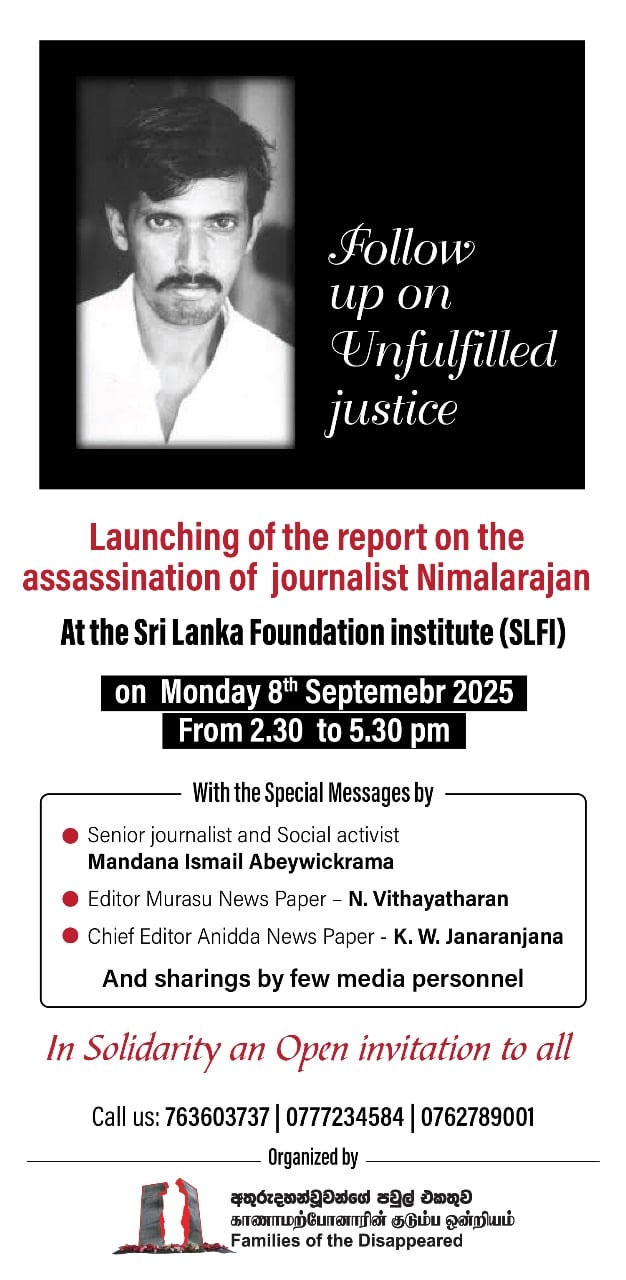
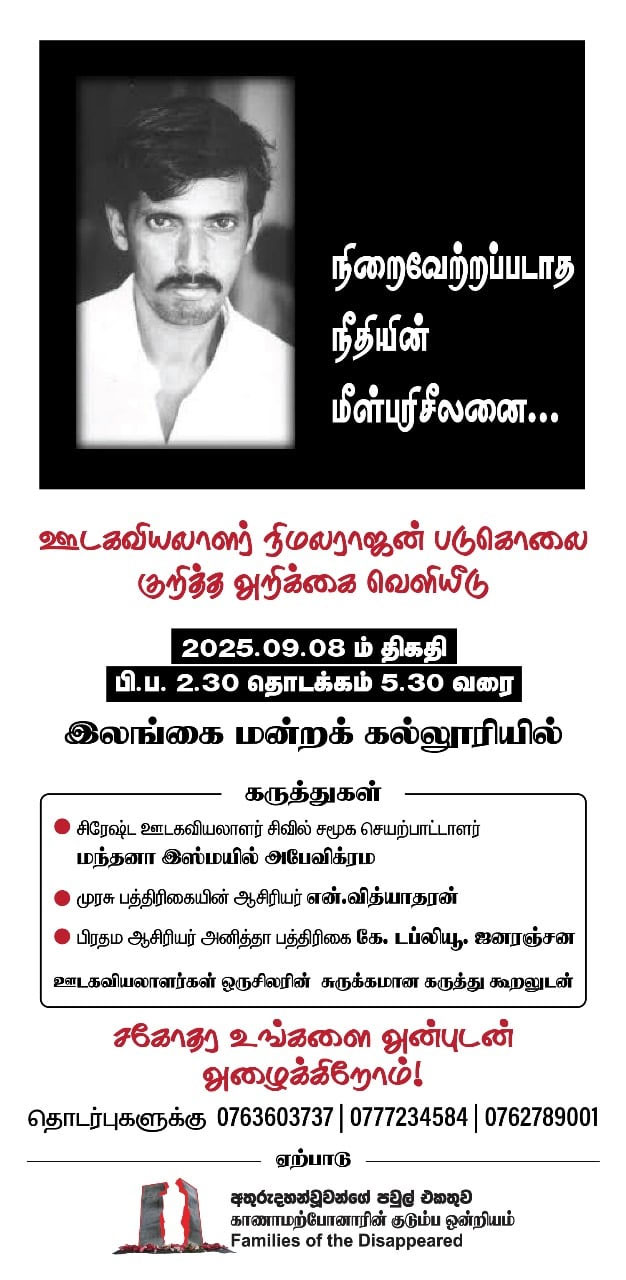
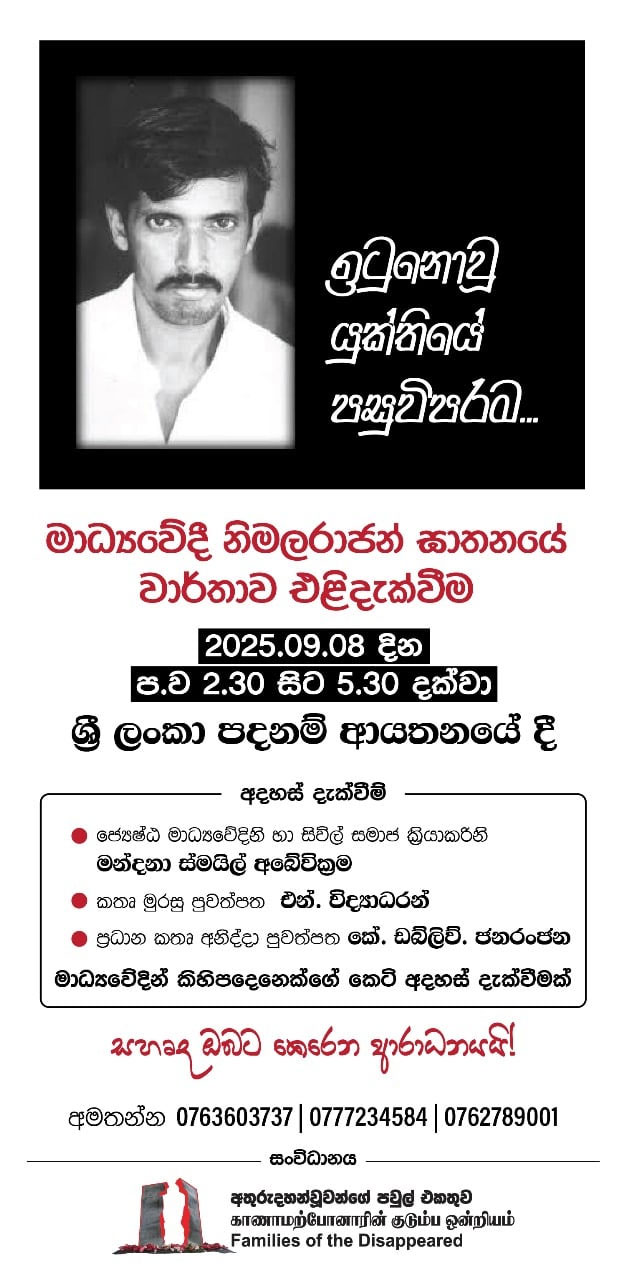
(lankaleader.lk)
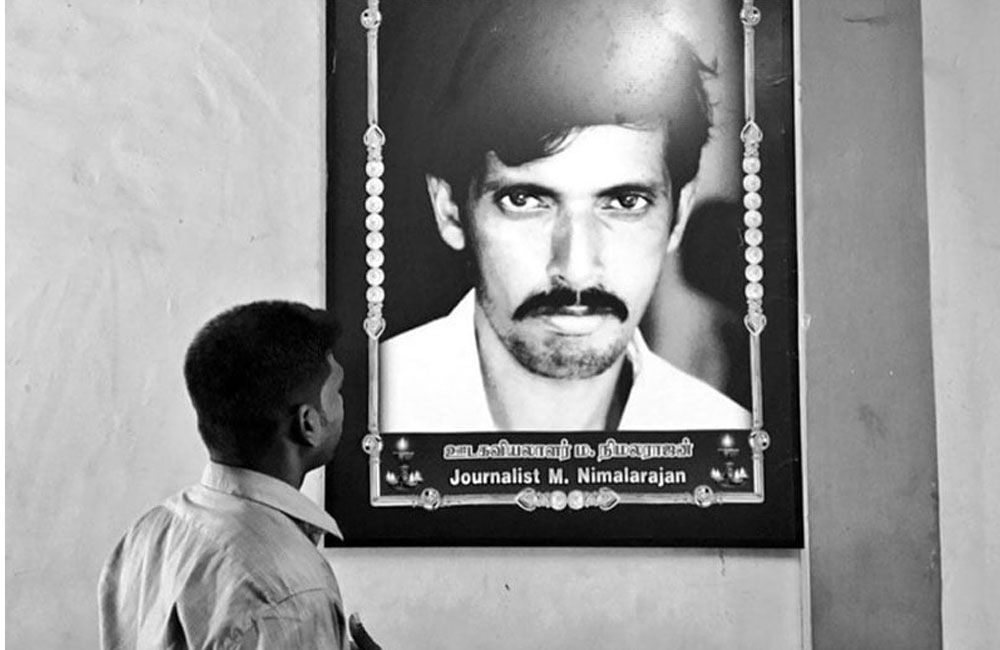
Leave your comments
Login to post a comment
Post comment as a guest